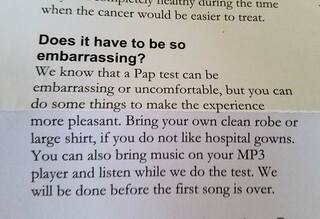|
What do you consider private and what do you consider secret?
After there has been a relationship betrayal of some kind (for example an extramarital affair, or sexual behavior not shared with the partner, or pornography viewing done in the absence of a partner), this question inevitably comes up. It's one of the most important questions we talk about in my office and yet one of the most scary for couples. Why? Because initially after the discovery of the betrayal, one or both partners want complete transparency: unlimited access to the cell phone, passwords to email and other online accounts, and heck, even ankle monitors! This is a direct result of the trauma felt by the betrayed partner and observed by the betraying partner (not to mention the guilt the betraying partner now feels): something was happening to/in their relationship without their knowledge or consent and now their world has turned upside down. What they thought was clear is now murky. Scary indeed -- to both partners. But complete transparency is impossible (believe me, I've seen and heard many clever strategies by the betraying partner to avoid so-called "complete transparency") and the betrayed partner usually end up saying something like "I don't want to be in the role of the cop", meaning they don't want to monitor their partner's activities 24-7. As their couples and sex therapist, I don't want this either. This can have profound implications down the road and it's my job to think about these things. The betrayed partner wants to trust. And if the betrayer is really committed to the relationship (and not doing the betrayal as a way out the door), they generally want to be trusted again too.  This is from a Q&A pamphlet from a gynecologist’s office about what a patient can expect during a pap smear. Oy, it makes my skin crawl. Here’s why: While I understand every ethical doctors’ motives are to help their patients and this pamphlet has been created to do just that, this is horribly offensive to someone who is sex-positive. I don't doubt that some women do feel uncomfortable during this procedure and doctors try to ease their discomfort. Yet this paragraph demonstrates that doctors are expecting their patients to be embarrassed and uncomfortable during the exam and test. That's a dynamic the doctors are setting up even before the patient walks into the exam room -- and it tells me they've been trained to respond to it. But I ask: what is there to be embarrassed about? By getting a pap smear test, a woman (or a trans man) is doing something powerful: they are taking control of their health and getting tested for a potentially life-threatening disease (cervical cancer if you didn’t know). This is something to be proud of! It is empowerment and agency at its best. Doctors help us take better care of ourselves. Where’s the pamphlet from them that celebrates this notable act of courage? |
Archives
March 2024
Categories |

 RSS Feed
RSS Feed